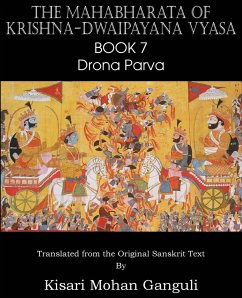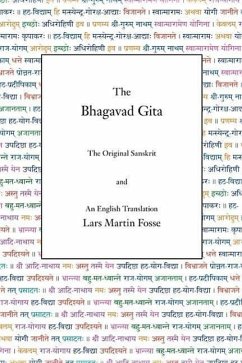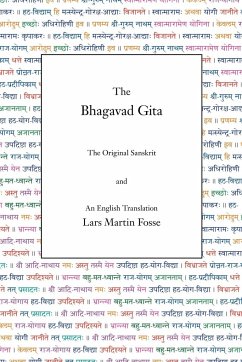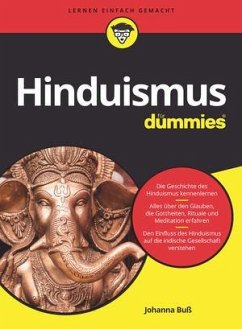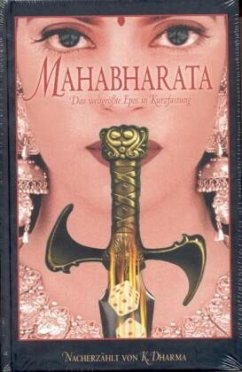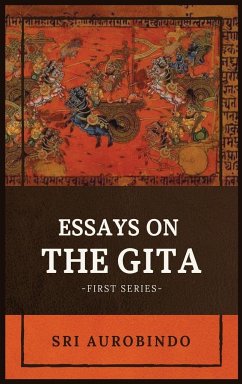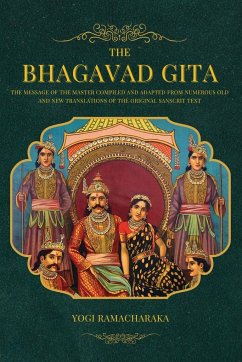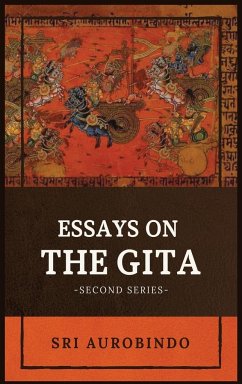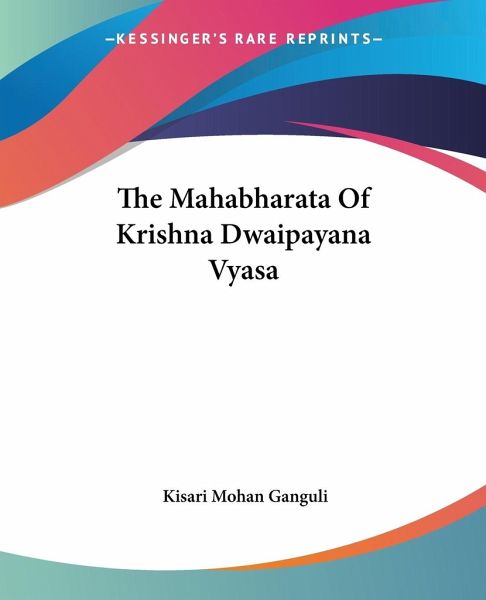
The Mahabharata Of Krishna Dwaipayana Vyasa
Versandkostenfrei!
Versandfertig in 1-2 Wochen
29,99 €
inkl. MwSt.

PAYBACK Punkte
15 °P sammeln!
""The Mahabharata of Krishna Dwaipayana Vyasa"" is a classic Indian epic poem that tells the story of the Bharata dynasty. The poem is divided into 18 books and contains over 100,000 couplets. It is one of the longest poems in the world and is considered a masterpiece of Indian literature. The poem is believed to have been written by the sage Vyasa, who is also a character in the story. The story follows the lives of two sets of cousins, the Pandavas and the Kauravas, who are vying for control of the kingdom of Hastinapura. The poem explores themes of duty, loyalty, honor, and the consequences...
""The Mahabharata of Krishna Dwaipayana Vyasa"" is a classic Indian epic poem that tells the story of the Bharata dynasty. The poem is divided into 18 books and contains over 100,000 couplets. It is one of the longest poems in the world and is considered a masterpiece of Indian literature. The poem is believed to have been written by the sage Vyasa, who is also a character in the story. The story follows the lives of two sets of cousins, the Pandavas and the Kauravas, who are vying for control of the kingdom of Hastinapura. The poem explores themes of duty, loyalty, honor, and the consequences of actions. The translation by Kisari Mohan Ganguli is considered one of the most accurate and comprehensive versions available in English. It includes detailed notes and explanations of the cultural and historical context of the story. This book is a must-read for anyone interested in Indian literature, mythology, or philosophy.This scarce antiquarian book is a facsimile reprint of the old original and may contain some imperfections such as library marks and notations. Because we believe this work is culturally important, we have made it available as part of our commitment for protecting, preserving, and promoting the world's literature in affordable, high quality, modern editions, that are true to their original work.



